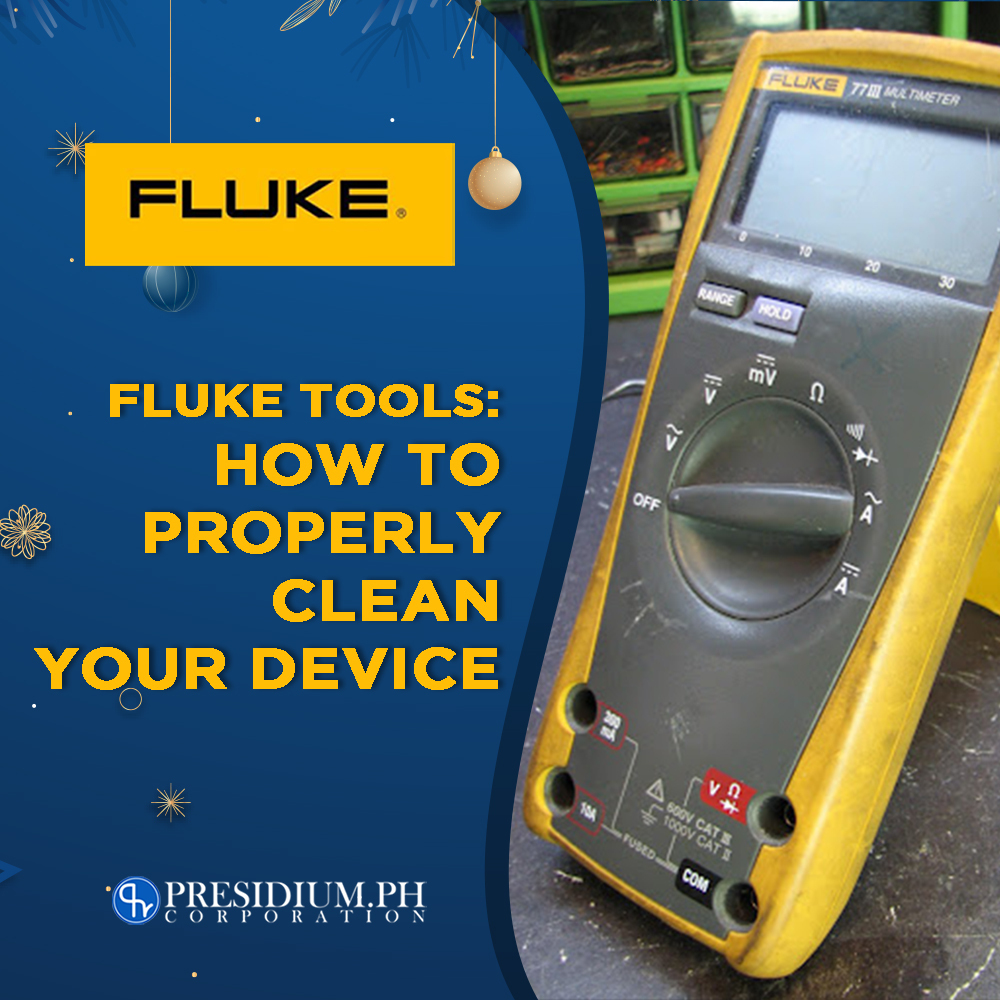Fluke Tools: How to Properly Clean Your Device
The growth of the pandemic has affected a lot of lives in terms of lifestyle and preventive health measures. New procedures were taken to ensure the safety of everyone. Most especially, new rules have been implemented to contain the spread of the virus. In lieu of this, one of the best practices everyone was taught was to keep our hands clean and disinfect gadgets.
With Fluke tools, no matter how rugged and durable fluke tools are, they are not susceptible to not inhabit any form of the virus.
With this said, now that society is slowly going back to normal, this doesn’t mean we should tolerate complacency. Normal processing of these health procedures should still be implemented especially in public places.
In an operational situation, or most especially, in work wherein touching things or being close to people is a must, hand hygiene, and device hygiene is a must. One of the most prominent working places that this usually happens is in industrial work areas.
Industrial work areas: What to expect?
Let’s just say working in the industrial sector is not a one-man job. Rather, it requires a lot of communication and teamwork. Furthermore, it also includes a lot of touching. Maybe not with your pals at work, but with your tools. And this can cause serious trouble to your workmates if one of the people touching that device is Covid positive. Scary right?
The passing of tools and data is not uncommon in a rugged environment. But to this day and age, it is also not deemed as the safest. Yes, the rates of Covid-19 cases have slowed down, but this doesn’t mean preventive measures should also slow down.
Caring for your Fluke tools.
Fluke tools are the best in the market, yes? Their reputation of being one of the most rugged tools in the industry is clear as daylight. This is why they are saturated by maintenance and troubleshooting professionals.
However, this doesn’t negate the fact that they also need a lot of caring and maintenance, specifically for the fact that they can be used in such harsh environments. Luckily for you, we’re here to show you how.
The role and importance of cleaning your devices.
According to WHO (World Health Organization), one of the most efficient ways how the virus jumps from one person to the next is in the form of touch. As stated by the University of Washington, cleaning removes most germs, as well as dirt and debris from surfaces or objects.
Ultimately, it was also mentioned in the study that the outer membrane of SARS-CoV-2, the virus that causes COVID-19, can be physically degraded by surfactants contained in all EPA-approved cleaning agents.
As you can see, properly cleaning your devices the proper way can boost workplace safety up a notch. Not only does this practice benefits your Fluke tools, but it also greatly benefits the people around you.
How you should properly clean Fluke tools.
To recall, the exterior of Fluke devices sports a yellow and grey hardcover. And with its ability to withstand harsh elements, let’s just say you shouldn’t go easy on it when you’re in the process of cleaning. Nevertheless, there is still a proper way to do it. Here’s how:
- Use clean cloths – Really, if you’re going to use discarded scraps of old cloth, then why are we cleaning it in the first place? Using clean cloths can eliminate germs, bacteria, debris, dust, and dirt. On the other hand, if you’re using used cloths, then, there is a high chance you’re just spreading the dirt and not actually cleaning your device.
- Use a Fluke Meter Cleaning wipe – Yes, ladies and gents, Fluke has an official cleaning wipe for its devices. It comes in a box and consists of black wipes. It is equipped with a pre-moistened industrial strength cleaning formula that removes surface dirt, oil, and grease from your test tools.
- Dry your equipment after cleaning – Because let’s face it, every electronic thing on the planet whether it’s a high-end device or a state-of-the-art tech, each one of them hates water. They can tolerate yes, but initially, there’s a chance of cutting their lifespan short when they are exposed to any form of water.
Here’s what you shouldn’t do.
Now you know how to properly clean your Fluke test tools, now, we’ll show you what you shouldn’t do! Here are some of them:
- Don’t use abrasive cleaners – These are scrubs, stones, liquid cleansers, powdered cleansers, etc. For the simple fact that it’s too strong of a cleaning solution for your device.
- Do not immerse tools in liquid – Your Fluke tools might be dirtier than expected, but do not put them underwater. Stick to the wiping procedure above.
Get your Fluke tool from a trusted source!
Now that you know how to properly clean your Fluke tool, why not get them from a trusted distributor? Presidium PH is an authorized distributor of Fluke test tools in the Philippines. So, if you want to know more about Fuke tools and their functions, visit our website for more info! This is a one-stop shop for the best test tools in the market!


